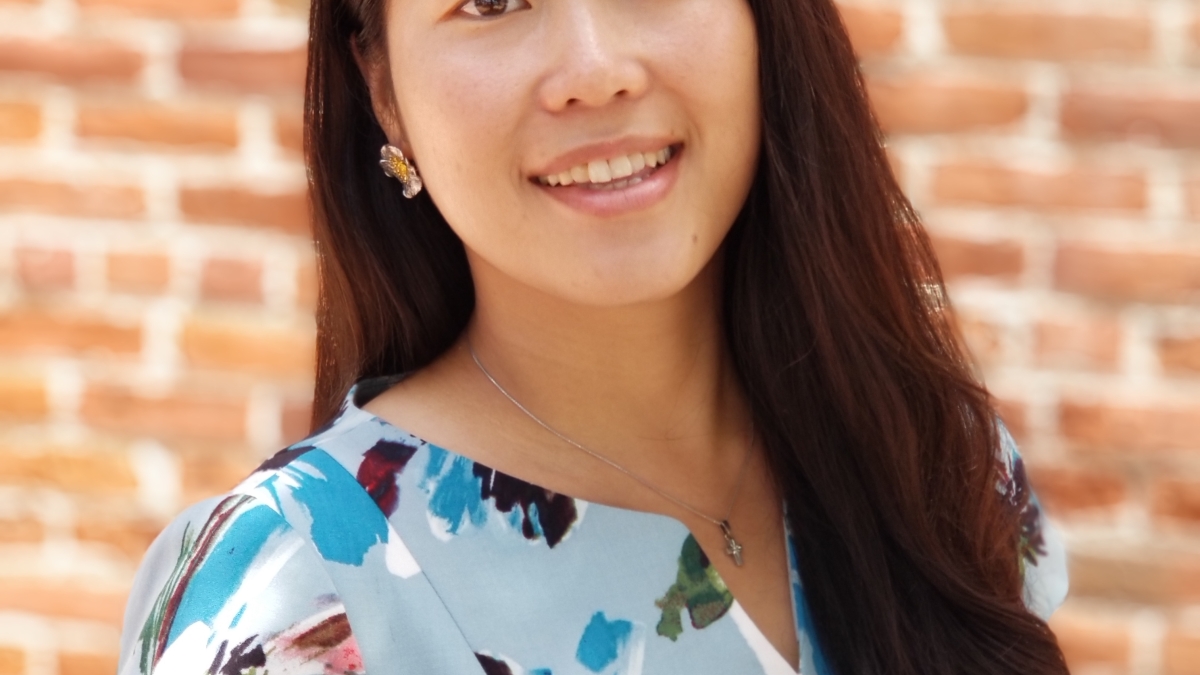ASU psychology student named 2020 Tillman Scholar

ASU psychology graduate student HyeJung Park was named a 2020 Tillman Scholar by the Pat Tillman Foundation. Photo by Adrian Ponciano.
The third year of graduate school in a doctoral program usually includes some coursework and a lot of data collection. For HyeJung Park it included all that — and a deployment with the Army.
Park is now a fourth-year psychology graduate student at Arizona State University, where she studies how community and culture contribute to adolescent development.
The Pat Tillman Foundation named her as one of their 2020 Tillman Scholars. The scholars possess the qualities of service, scholarship, humble leadership and impact. The fellowship funds academic expenses and provides leadership development and networking opportunities.
“The Tillman Scholars make up an incredible group of current and former leaders within the military and their community who are passionate about taking skills from military service and applying them to finding solutions to problems. I am excited to grow and learn among them,” Park said.
Paying it forward
Park’s path to becoming a developmental psychology graduate student at ASU began in community college in California, which was possible for her because state law allowed undocumented immigrants who were brought to the United States as minors to pay in-state tuition. When California passed laws allowing undocumented immigrants to apply for college scholarships and financial aid, Park transferred to the University of California, Irvine with a Regents Scholarship.
The Deferred Action for Childhood Arrivals (DACA) program let Park apply to graduate school and enlist in the military through the Military Accessions Vital to National Interest (MAVNI) program, which let her earn American citizenship.
“Today I am a developmental psychology graduate student and a member of the Army reserves through the support of my community,” Park said. “I am a beneficiary of California Assembly Bill 540, the California Dream Act, and DACA. My life is an example of the impact of legislative changes brought by the efforts of community activists and American voters.”
Park views her military service and doctoral studies in developmental psychology as a way to give back to her country and community.
“Because of how the California Dream Act, DACA and MAVNI altered my life, I want to promote equitable opportunities for the development of the next generation of young people,” she said. “I am committed to examining the present challenges confronting youth development and to creating empirically supported programs, policies and practices that reduce inequality.”
Balancing data collection and deployment
Park joined her fellow ASU psychology graduate students a semester late because she was at basic combat training, but she still completed her master’s thesis on time — right before her deployment began.
While deployed, she taught an in-person introductory psychology course to other active duty military members and continued working on her research in the Adolescent Stress and Emotion Lab with Leah Doane, associate professor of psychology.
“HyeJung is one of the most committed and compassionate students I have ever had, and when she gets excited by a research idea, she runs with it,” Doane said. “She is becoming an expert in how neighborhoods impact development — she is working towards a geographic information systems certificate from ASU — and is currently linking big data about neighborhoods to the ongoing projects in my lab.”
Every other week, Park met virtually with Doane to talk about research happening in the lab. Park also supervised a team of undergraduate research assistants while collecting and coding neighborhood data for the ongoing Transciones Study.
Park is currently in the process of publishing a study about factors that increase college graduation rates among Latino teenagers. To date, she has identified that the intersection of cultural values and high school environment is an important influence on college success.
“HyeJung is an amazing student and collaborator who has been working with me on my grant from the Army Research Institute on cultural identities. She is a leader and gets things done,” said Adam Cohen, professor of psychology. “I truly admire how she balances her top-notch performance as a graduate student with the extremely demanding responsibilities of her military service.”
After ASU, Park wants to pursue a postdoctoral fellowship through the Society for Research in Child Development. The program immerses early career developmental scientists in state executive branch agency offices that focus on youth programs and policies.
“I want to be an effective liaison between the developmental research community and Congress to inform public policy development, implementation and evaluation with the intentions to promote positive and resilient development of at-risk and marginalized youth,” Park said.
More Science and technology

Cracking the code of online computer science clubs
Experts believe that involvement in college clubs and organizations increases student retention and helps learners build valuable…
Consortium for Science, Policy & Outcomes celebrates 25 years
For Arizona State University's Consortium for Science, Policy & Outcomes (CSPO), recognizing the past is just as important as…

Hacking satellites to fix our oceans and shoot for the stars
By Preesha KumarFrom memory foam mattresses to the camera and GPS navigation on our phones, technology that was developed for…